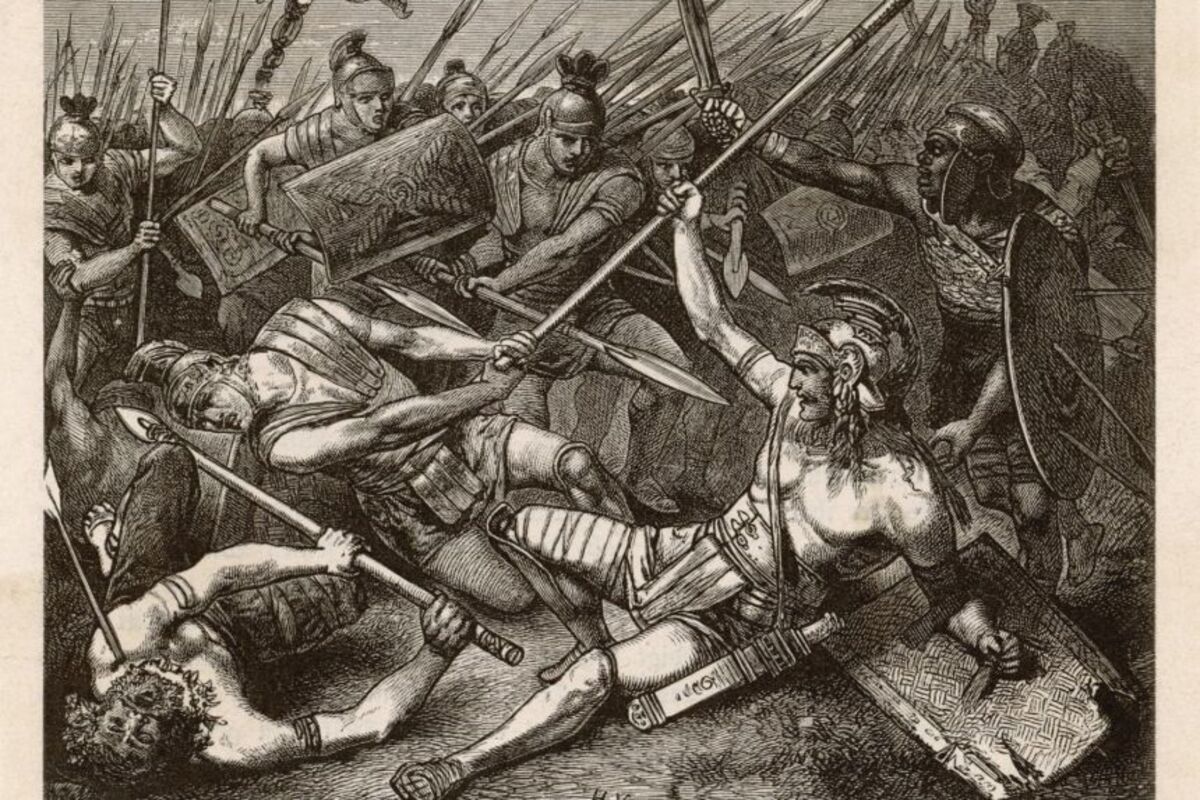Thespian Badal Sircar’s famed play “Spartacus” was re-enacted by the artists of Wings Cultural Society at IIC (India International Center), New Delhi on the 24th of June. Based on a historical novel by American novelist Howard Fast, the drama’s adapted version has been directed by Tarique Hameed and translated by Rati Bartholomew and Virendra Saxena.
Spartacus was the leader of the great slave revolt that began in BC 71 and shook the mighty Roman Empire for four long years. Although it began from a spontaneous upsurge in the gladiatorial school of Capua, it did not remain so for long.
Advertisement
Under the able leadership of Spartacus, the gladiator, the handful of rebels soon transformed into an organized slave army of thousands that fought for something unheard of by any other army the world had seen so far.
The whole play revolves around five actions, that is, capturing the people, selling these captives in the market, slaves toiling, gladiator-slaves fighting in the arena, and crucifixion of the slaves for the act of rebellion.
“Spartacus was the first revolutionary of the world who raised his voice against the Roman Empire. The story depicts a slave who challenged the trend of slavery in Rome and fought for the freedom of all slaves,” said Tarique Hameed.
“In today’s era, society is still under the cage of those anti-social values which were there in Rome. Everyone is ready to kill each other in the name of caste, creed, or color. All have been entangled psychologically. Wings Cultural Society has presented this play to open the eyes of the society and make them aware of these social differences,” he further added.
Interestingly, Badal Sircar had in the year 1972, produced Spartacus, and performed it in a bare room with the audience sitting all around. While writing this play he mentioned that only human force should be used while performing the play.
Mentioning this point, Hameed added, ” I have always focused more on the acting skills than the props and extra items. and as Badal Sircar also always focused on this, so we in this play used only the acting skills of an artist, the human energy and efforts to depicted the emotion of the play.”
Moreover, he said, ” I prefer more of good lighting, costume, an expression which adds on to your performance and here for this play we did the same. A lot of training, practice, and patience were devoted by the cast.”
The Music for the show was done by Ayush Sharma whereas the light design was done by Ranjan Basu.
The play was truly a gem as the artist gave a wonderful performance with a powerful depiction of emotions and expressions. The main lead Spartacus was portrayed by artist Prince who gave an amazing performance with the team.
Here are some glimpses from the play:











